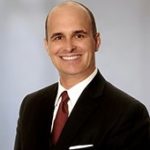By Michael Watts and David Solomon


In 2006, the Ontario Human Rights Code was amended to remove age 65 as the upper limit of prohibited discrimination based on age. Many hospitals interpreted this to mean that they could no longer require physicians, based on age, to retire or to transition from active staff to consulting or locum staff.
This interpretation and the issue of late career transitioning has now been brought to the forefront by physicians themselves who are recognizing that, due to the large size and longevity of the baby boomer generation and other economic pressures, there is a disproportionate number of physicians who are continuing to practice beyond traditional retirement age.
As a result, many hospitals today do not have any effective succession planning in place to manage their aging medical staff. This creates several issues, including:
- patient safety and quality of care risks, in relation to decline in performance that usually accompanies advancing age (studies have demonstrated that there is a precipitous decline after age 55 in cognitive function, inductive reasoning, verbal memory and overall reasoning)
- a barrier to entry for younger doctors recently trained in the latest medical procedures
- personal health risks relating to the well-being of aging physicians who are poorly prepared to transition to retirement
However, even before these 2006 amendments, there has always been a body of law recognizing that an employer can establish a discriminatory practice based on age, if the discrimination is indeed a reasonable and “bona fide” qualification of employment (e.g., pilots, police, firefighters), particularly where the discrimination is validated by research and related to public health or safety.
The concept of a bona fide occupational requirement has always applied to hospitals and, accordingly, hospitals should require physicians of a certain age to develop late-career transition plans that provide :
- the reclassification of their privileges, perhaps to a “senior staff” category
- reduced access to resources in consideration of reduced call responsibilities
- mentoring opportunities and resource sharing with new recruits
- ongoing meaningful participation in teaching, research and administration, considering a marked diminution in clinical activities
Until recently, however, hospitals have largely ignored these age-related risks to patient safety and quality of care, allowing aging physicians to self-determine when they will retire, regardless of the inevitability of cognitive function decline and the inability to put an orderly succession plan in place.
In some U.S. jurisdictions, medical boards and associations have collaborated to develop best practices in late career transitioning policies and procedures which, among other things, call for the creation of in-hospital “well-being committees” that are separate from credentials committees. These policies acknowledge that hospitals do not currently provide sufficient resources to assist with the well-being of physicians as they transition to retirement.
MORE: SOLVING THE MYSTERIES OF HEART SURGERY
The mandate of a well-being committee is essentially to oversee the implementation of enhanced peer reviews for all physicians of a certain age at the hospital. The aim is also to establish a collaborative protocol for conducting peer reviews by a committee that has no authority to take disciplinary action against staff. The protocol includes provisions for confidentiality and physician support, including advising physicians on the outcome of such reviews. However, it also makes clear that in the event that information demonstrates that the health or known impairment of a medical staff member poses an unreasonable risk or harm to patients, such information may be referred to a credentials committee for corrective action.
In conclusion, hospital boards, administrators and physician leaders must be able to put in place meaningful succession plans for their medical staff that clearly identify that quality patient care is paramount, but that also provides assistance in transitioning physicians from an active staff practice to a transitioning practice with meaningful hospital roles that eventually results in retirement.
Michael Watts is a Partner in the Toronto office of law firm Osler, Hoskin & Harcourt LLP, and is Chair of the firm’s Health Industry Group. David Solomon is an Associate in the Toronto office of law firm Osler, Hoskin & Harcourt LLP and is a member of the firm’s Health Industry Group.


